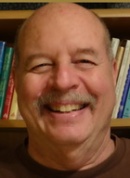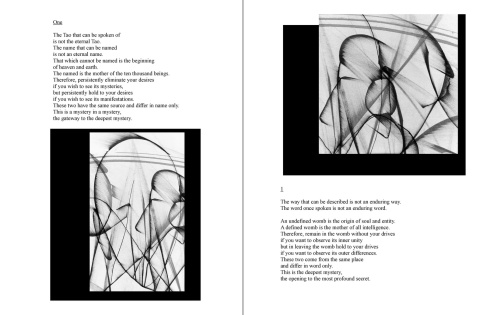Welcome to my new blog. My name is Robert M. Jankel and I have a new book coming out over the next 4-9 months. It’s called “Lao Tzu, Tao Te Ching, An Intuitive Interpretation.” It’s being published through DonnaInk Publications.
There are so many translations and interpolations of this book on the market today. What makes mine different from the others? First, there’s not just one interpretation. There are actually 3 separate versions in one book. There is a more literal interpretation and then there is a liberal version and finally there are 162 illustrations that comprise a visual interpretation.
Why the Tao Te Ching? About 50 years ago at the age of 17, I had an experience that changed the direction of my life. When I came across some translations of this book, I found that it contained a number of things that I’d been thinking about. I was also struck by (what seemed to me) Lao Tzu’s unique reasoning. It is so different that to this very day, I’m still trying to dig deeper, asking myself what it is that he and his movement were really trying to convey.
I began writing my versions back in 1988 and I’ve been working on this project, now—on and off—for about 25 years. Because I don’t speak or write Chinese, I’ve had to rely on English versions in compiling my own interpretations. This is a definite disadvantage. On the other hand, there is an advantage in not having gone down the same path that most everyone else has traveled, and it has allowed me to view Lao Tzu and his Tao Te Ching from different angles and perspectives. Also, I did have a translator of sorts. I constantly consulted the I Ching (an ancient Chinese book of divination) to guide me.
Here are my examples from the first poem in my book:
Because I’ve never had a blog before (I guess at the age of 67 I’m an old fogy), I’ve begun looking at different blogs on the Tao Te Ching. I’ve been surprised and a bit shocked to find (what is to me) various misconceptions of the TTC. In one blog, I was reading about how unfriendly the sage is. In that same blog someone actually compared what the Khmer Rouge did to the 80th poem. That just boggles my mind!
Where do people get these ideas? I think it comes from taking things out of context. This is something that can be quite dangerous especially if we’re trying to construe things about the TTC. The Tao Te Ching is like a living organism. There’s a unity about it and there’s a thread that goes through each poem that holds things together, and it keeps turning back upon itself. There are only 81 poems but it would be quite possible for people to write whole books on certain aspects from some of the poems.
For example, probably the biggest misconception in the TTC comes from the 5thpoem (the more literal and the liberal versions from my up-coming book without the illustrations):
Five
Heaven and earth are not humane
and perceive the ten thousand beings as straw dogs.
The wise person is not humane
and perceives the people as straw dogs.
It’s that space between heaven and earth,
isn’t it like a bellows,
empty—yet not devoid of life.
Move it back and forth and never stop using it.
Talk too much and you become exhausted.
Better hold tightly to what you already have within.
5
Soul and entity are without heart.
They use things for their own ends.
The wise ruler is without heart.
He uses kinship for his own ends.
The space between soul and entity
resembles breathing apparatus.
Empty and yet through constant use it doesn’t collapse.
The more you push it the more it supplies.
In the pursuit of artificial learning,
what’s really you gets weighted down
with too many facts.
Stay in the center and become the one who truly cares.
Now, I admit, by looking at poem five in and of itself—well, things don’t look too good. However, when you read some of the other poems, how can a ruler love the people and govern the country or how can the sage be good to those who are good and good to those who are not good? Clearly there seems to be something going on in poem five that seems to contradict just about everything else in the TTC. The question is why? What point is Lao Tzu trying to make here?
First, he’s telling us that the outer world, the physical universe is a dangerous place to live in. Life can be a struggle; nature can be quite cruel. There are billions upon billions of hungry self centered creatures. There are birds and bees, tigers and trees, there are humans, and virtually everyone wants “a piece of the action.” Everyone who has a body has their own self interest and their own hungers that need to be fulfilled.
He’s also stating that in the dualistic world, heaven has its own self interests and earth has a different point of view. What this means is that within each of us, there can be a battle going on between different aspects of ourselves. There can be a push and pull between soul and entity, spirit and body.
The fifth poem is trying to tell us that we need to know ourselves and what it is we truly want in life. What are our boundaries? At what point do we realize when we need to defend ourselves? Otherwise we’re going to get pushed around by various forces.
If I notice that above the front door of my house there’s a wasps nest, I may at first choose to go through the back door of my house for a time but the question is: how long will I be willing to go through the back door? Do I give up the front area of my house to a group of wasps or in self defense do I kill the wasps or remove them? What are my limitations and what are my boundaries? What is my belief system? And of course, this is taking into account that other poems in the TTC are talking about forgiveness and love. Yet, no matter how hard we try, there are going to be times when a certain amount of ruthlessness seems unavoidable. Also, it’s entirely possible that in opening my front door and stepping outside, I may have inadvertently killed some tiny creatures that I don’t even notice! This is what the TTC is talking about.
Poem five tells us that at times everyone is so caught up with self and selfishness that it seems that there is no caring going on in the world. Straw dogs were sacrificial items that were thrown away after they were used. This may be a bit of a stretch, but this poem is actually saying something similar to what Rabbi Hillel said: “If I am not for myself, then who will be for me? if I am not for others, what am I?”
The poem states there’s a space between heaven and earth and Lao Tzu is telling us that we are the ones that can fill the space. We are the ones who can bring caring into the world through our humanity. We are the ones who can develop a special “heart.” That’s because we are the ones who are to become “the humane” and what humans were truly meant to be.

